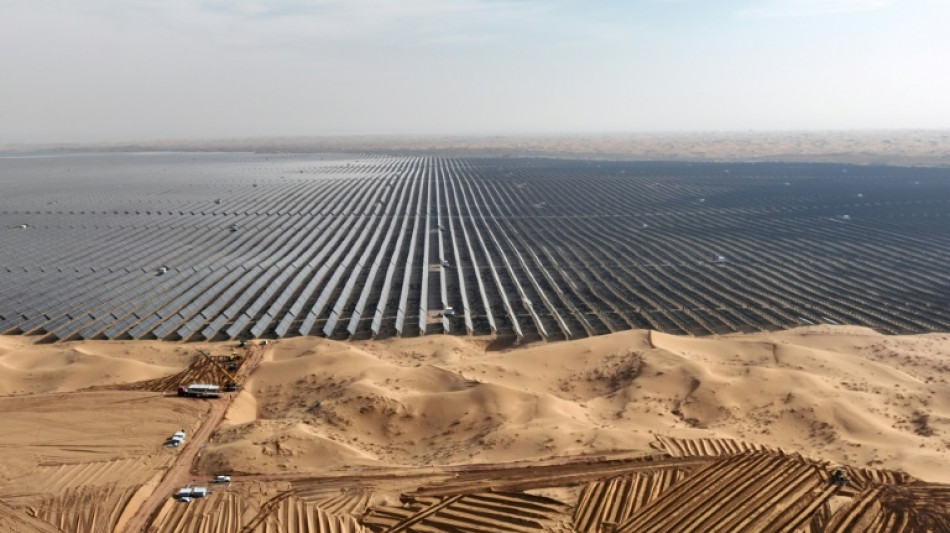

World added 50% more renewable energy capacity last year over 2022: IEA
The world added 50 percent more renewable energy capacity in 2023 over the year before, the International Energy Agency said Thursday, predicting booming growth in the next five years.
The United Nations-led COP28 summit concluded in Dubai last month with nearly 200 nations agreeing to a first-ever call for the world to transition away from fossil fuels.
"The amount of renewable energy capacity added to energy systems around the world grew by 50 percent in 2023, reaching almost 510 gigawatts, with solar PV accounting for three-quarters of additions worldwide," the energy watchdog said in a statement.
It said the largest growth took place in China, which commissioned as much solar PV in 2023 as the entire world did in 2022, while China's wind power additions rose by 66 percent year-on-year.
"The increases in renewable energy capacity in Europe, the United States and Brazil also hit all-time highs," said the report on the sector.
IEA chief Fatih Birol said the report showed that "under current policies and market conditions, global renewable capacity is already on course to increase by two-and-a-half times by 2030".
"It's not enough yet to reach the COP28 goal of tripling renewables, but we're moving closer –- and governments have the tools needed to close the gap," he added.
Birol said onshore wind and solar PV were cheaper now than new fossil fuel plants as well as existing fossil fuel plants in most countries.
"The most important challenge for the international community is rapidly scaling up financing and deployment of renewables in most emerging and developing economies," he said.
"Success in meeting the tripling goal will hinge on this," Birol added.
R.Ryan--NG
